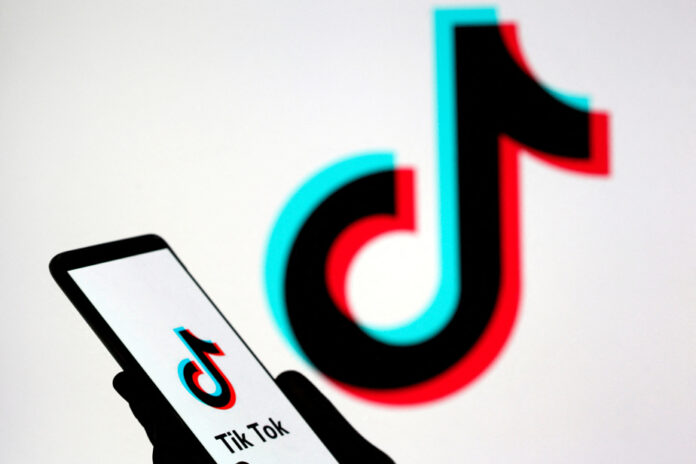(Ottawa) A TikTok executive on Wednesday faced Canadian lawmakers who fear the app’s data could end up in the hands of the Chinese government.
Steve de Eyre, director of public policy and government affairs for TikTok Canada, stressed at a House of Commons committee meeting that the video-sharing app is not controlled by the Chinese government .
Western governments have raised concerns that the popular platform owned by Beijing-based ByteDance could put sensitive data in the hands of the Chinese government or be used as a disinformation tool.
Chinese law says the government can order companies to help it gather intelligence.
When NDP MP Matthew Green asked a question about the law, another TikTok executive brushed it aside.
“I’m not an expert on Chinese law,” said David Lieber, head of public privacy policy for the Americas.
The federal government banned TikTok from government-owned devices in February, after its chief information officer announced the app created an “unacceptable” level of privacy and security risk.
Provinces then followed suit and banned TikTok from government devices, which de Eyre says is unfair.
He added that he has since contacted the Treasury Board and the Chief Information Officer to better understand the government’s position.
“We operate the same way as other platforms. I will say that our policy – and we’ve been public about this – is that it’s probably not necessary to have social media apps or entertainment or gaming apps on an employee’s device. government. But these rules must apply equally to all platforms,” he told the standing committee on access to information, protection of personal information and ethics.
Federal and provincial privacy authorities have also investigated whether TikTok complies with privacy legislation.
A growing number of governments, including the United States, have banned the popular video-sharing app due to growing cybersecurity concerns.
In Australia, the app was banned from government devices after the country’s attorney general received advice from intelligence and security agencies.
The European Parliament, the European Commission and the Council of the European Union have also imposed bans on their devices, and advised their staff to remove the TikTok app from their personal devices.
Lieber said TikTok is taking steps to protect Canadian data by storing it on servers in the United States, Malaysia and Singapore.
He said the Chinese government never requested Canadians’ data, but admitted that “it would be irresponsible for me or any other employee of a technology company to give categorical guarantees about what governments are capable or incapable in terms of their ability to carry out activities, including hacking, on their own initiative.”
An intelligence memo from September 2022, disclosed under the Freedom of Information Act, has shed new light on the government’s concerns about TikTok.
The Privy Council Office Intelligence Assessment Secretariat memo says TikTok is the first Chinese app to reach more than 1 billion users outside of China, “thus creating a platform for collection and influence ubiquitous and globally integrated that Beijing could exploit.”
“Despite assurances, there is growing evidence that TikTok data is accessible to China,” reads the document, which draws on both open sources and classified information.
In a first-of-its-kind report on Chinese disinformation released last month, the US State Department claimed that ByteDance sought to prevent potential critics of Beijing, including those outside China, from using its platforms.
The report states that the US government has information from late 2020 that ByteDance “maintains a regularly updated internal list” identifying people blocked or prohibited from accessing its platforms, including TikTok, “for reasons such as defending Uyghur independence.”
A TikTok spokesperson, who did not give a name, said Wednesday that “such lists do not exist for TikTok.”















